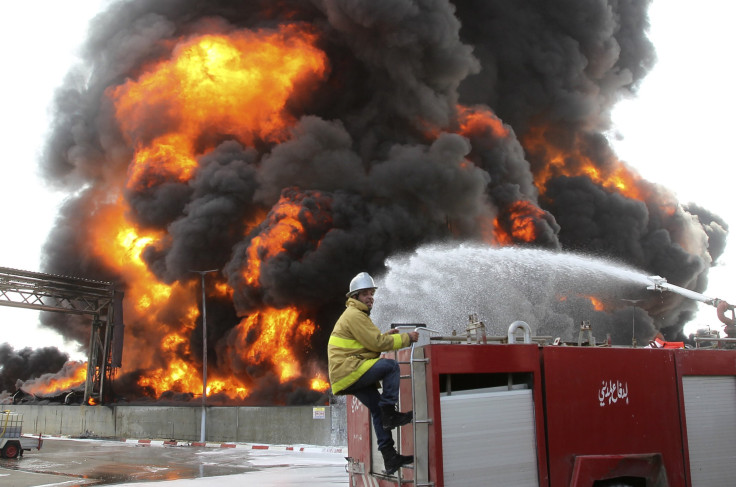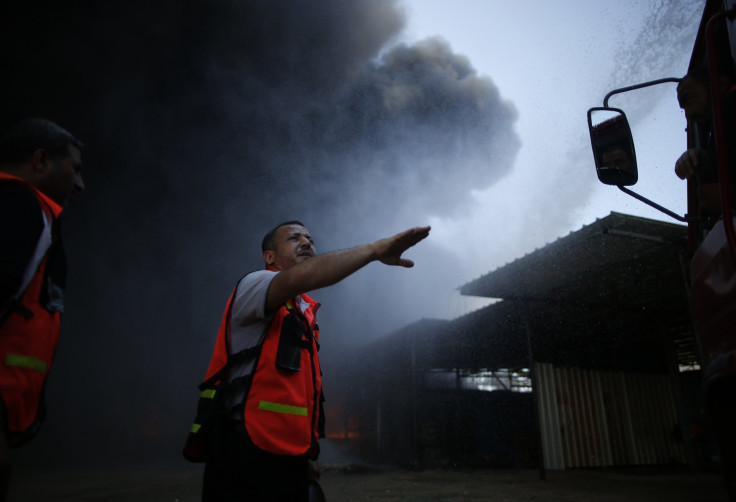Kerry And Netanyahu Face-Off Over Cease-Fire After Hamas And Palestinian Liberation Organization Have A Truce Misunderstanding


Over the course of about 90 minutes Tuesday, the Palestine Liberation Organization declared a cease-fire for all Palestinian factions for 24 hours, then said it could turn into a 72-hour truce. Minutes later, Hamas rejected the deal, saying the Islamist group never agreed, followed by another Hamas leader saying the group was considering the deal. In the short time it took for all this maneuvering, 13 Palestinians were killed in northern Gaza.
If that wasn't confusing enough, U.S. Secretary of State John Kerry and Israeli Prime Minister John Kerry are now facing off on the elusive topic of cease-fires. On Tuesday, Kerry said in a press conference that Israel had asked the U.S. to help broker a cease-fire, meaning that Israel was actively seeking a truce. “Last night we talked, and the prime minister talked to me about an idea and a possibility of a ceasefire. He raised it with me, as he has consistently," Kerry said.
Almost immediately after, an Israeli official issued the following statement, Haaretz reported:
"Kerry was the one who brought up the option of a cease-fire to Netanyahu, not the opposite. Netanyahu told Kerry that currently the continuation of the IDF operation is necessary in order to protect Israeli citizens as well as to neutralize the terror tunnels. Netanyahu added that neutralizing the tunnels will continue until the mission is over."
Before the Kerry- Netanyahu misunderstanding, there was miscommunication between Palestinian factions. Yasser Abed Rabbo, secretary-general of the PLO Executive Committee, announced the 24-hour pause in fighting. The announcement came after the only power plant in Gaza was hit by two Israeli shells, plunging nearly the whole strip into darkness.
"After extensive calls and consultations with the brothers in Hamas and Islamic Jihad, the Palestinian leadership announces on behalf of everyone the willingness for a cease-fire and humanitarian truce for 24 hours," Rabbo said. He then added that the United Nations suggested the pause last for 72 hours and that Palestinian factions were “dealing positively with this suggestion."
Less than an hour later, Hamas denied that it had accepted the unilateral cease-fire.
"We will not agree to calm until Israel commits to quiet. If we get an international commitment regarding an Israeli agreement for calm, we will consider it," said Sami Abu Zuhri, a Hamas spokesman in Gaza. In a more agressively-worded statement on Hamas TV, Abu Suhri said "When we get guarantees from the Zionists for an international mediation regarding a humanitarian pause, then we can consider it."
However, the Times of Israel then reported that Hamas' Qatar-based leader Khaled Meshaal told the Israeli government that the group is ready for a daylong truce.
The cease-fire announcement was issued just before an all-Palestinian delegation, representing Hamas, Fatah and the Islamic Jihad, was set to go to Cairo for cease-fire proposal negotiations. Haaretz reported Egypt is prepared to discuss certain cease-fire terms so negotiations between Israeli and the Palestinian factions can begin.
While government officials clash over cease-fires, on the ground the two sides continue to fight each other and the death toll mounts. In the last 24 hours, at least 100 people have been killed in Gaza and the power plant continues to smoke. The death toll has surpassed 1,000 Palestinians at at least 53 Israeli soldiers.
© Copyright IBTimes 2025. All rights reserved.






















